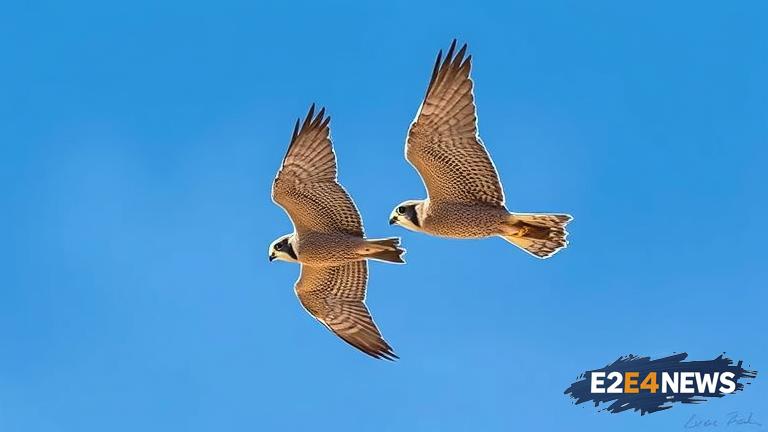In a groundbreaking conservation effort, more than 80 falcons from the United Arab Emirates (UAE) have been released into the wild in the Karagandy region of Kazakhstan. This initiative is a significant step towards preserving the global falcon population and promoting biodiversity. The release of these majestic birds is the result of a collaborative effort between the UAE and Kazakhstan, highlighting the importance of international cooperation in conservation. The falcons, which were bred in captivity, have been equipped with tracking devices to monitor their migration patterns and behavior. This data will be crucial in understanding the habits of these birds and informing future conservation strategies. The Karagandy region, with its vast steppes and favorable climate, provides an ideal habitat for the falcons to thrive. The local community has been actively involved in the conservation efforts, with many residents participating in the release ceremony. The UAE has been at the forefront of falcon conservation, with the country’s leaders recognizing the importance of preserving this iconic species. The release of the falcons is a testament to the UAE’s commitment to environmental sustainability and its dedication to protecting the world’s natural heritage. The conservation of falcons is not only important for the ecosystem but also has significant cultural and economic implications. In many countries, falconry is an integral part of the national heritage, and the preservation of these birds is essential for maintaining this tradition. The release of the falcons in Kazakhstan is also expected to have a positive impact on the local economy, with ecotourism and wildlife tourism expected to increase. The collaboration between the UAE and Kazakhstan serves as a model for international cooperation in conservation, demonstrating that collective efforts can lead to significant positive outcomes. The use of technology, such as tracking devices, is also a key aspect of modern conservation, enabling researchers to gather valuable data and make informed decisions. The release of the falcons is a celebration of the power of conservation and the impact that collective efforts can have on the environment. As the world grapples with the challenges of climate change and biodiversity loss, initiatives like this serve as a beacon of hope for the future. The UAE’s commitment to falcon conservation is a shining example of a country’s dedication to environmental sustainability, and its partnership with Kazakhstan is a testament to the power of international cooperation. The Karagandy region, with its unique landscape and favorable climate, is an ideal location for the release of the falcons, providing them with a safe and nurturing environment. The local community’s involvement in the conservation efforts is also a crucial aspect of the project, ensuring that the release of the falcons is a success and that the birds are protected and respected. The tracking devices fitted to the falcons will provide valuable insights into their behavior, migration patterns, and habitat use, enabling researchers to develop effective conservation strategies. The release of the falcons is a significant milestone in the conservation of this iconic species, and it is expected to have a lasting impact on the environment and the local community. The collaboration between the UAE and Kazakhstan is a powerful example of what can be achieved through international cooperation, and it serves as a model for future conservation efforts. The conservation of falcons is a complex issue, requiring a multifaceted approach that involves governments, local communities, and international organizations. The release of the falcons in Kazakhstan is a significant step towards addressing this issue, and it is expected to have a positive impact on the global falcon population. The UAE’s leadership in falcon conservation is a testament to the country’s commitment to environmental sustainability, and its partnership with Kazakhstan is a powerful example of international cooperation in action.
